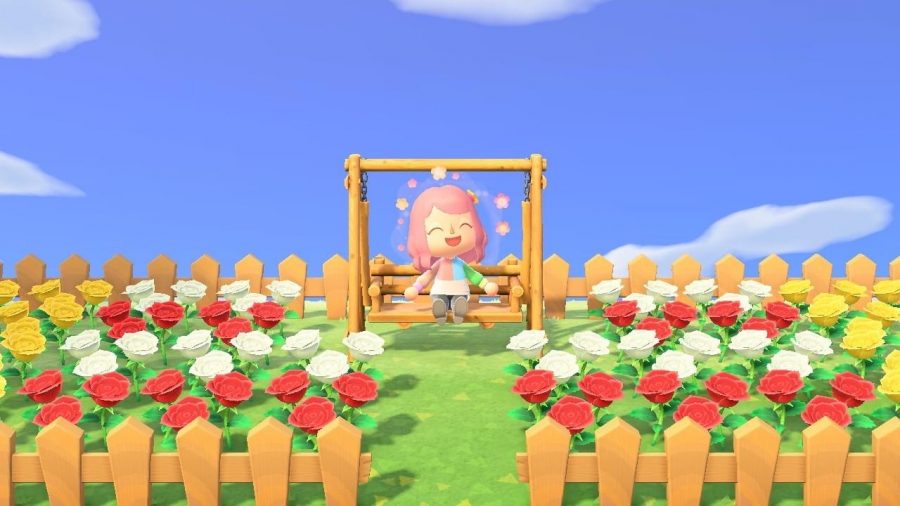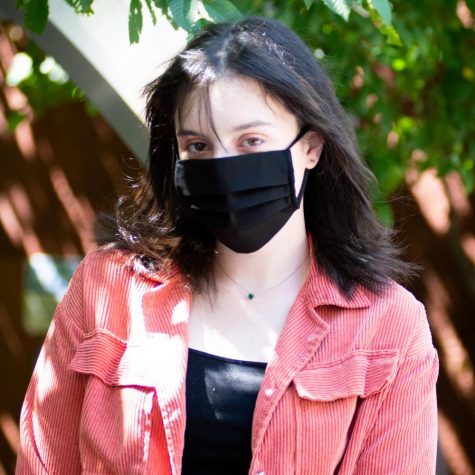The coronavirus gives me anxiety. I know I’m not alone in that. Specifically, mention of its symptoms and its victims, especially ones I know, sends me into a deep spiral I can’t quite get out of on my own. There’s nowhere to hide from a sudden burst of unwarranted, graphic information, which seems to come a lot more often these days. It’s even harder to hide when you work at a small news publication in New York City.
I used to know the future, how my family would celebrate upcoming holidays; now, instead of hosting our entire extended family for the Passover Seder, my family ate alone. I used to rely on my color-coded calendar and make plans down to the minute; now I find myself furiously erasing and rewriting with each email from the Provost or a professor. I used to take my relationships for granted; now I cling to FaceTime like a lifeline. My friends are miles away and even the few who live close can only come sit in my backyard at a six-foot distance. I used to assume I’d have a summer internship in the city; now all my internship applications have been rejected because the internships don’t exist anymore. I used to live in a little shoebox apartment in Manhattan, complaining about the broken elevator; now I still pay rent for that apartment, but I live with my parents, and I don’t know if I’ll ever live in that apartment again. I used to only think about the health of my friends and family when it was an immediate concern; now it’s the only thing I think about.
I have a deep fear of instability, which is further compounded upon by an unyielding fear of the unknown. The current global crisis isn’t exactly helping, and the fact that NYU has been making life-changing decisions with little warning hasn’t been helping either. Everything is spiraling out of control, and I needed a rock to grab onto, just to steady myself. Until March 20, I couldn’t find a rock, and I was losing it.
On the same day I moved out of my Manhattan apartment and into my childhood bedroom for the foreseeable future, Nintendo released the video game “Animal Crossing: New Horizons” for the Nintendo Switch. The game’s release was highly anticipated, but not particularly by me — I didn’t have a lot of free time, and I also didn’t own a console to play it on.
In elementary school, my friends and I had played a much earlier entry in the series called “Animal Crossing: Wild World” on the Nintendo DS. I didn’t remember much about what I’d done in the game as a seven-year-old, but I remember that I had a town, and I named the town Butt City.
I looked around — I was sitting in my childhood bedroom with two duffel bags waiting to be unpacked staring me in the face. I had more control over Butt City as a little kid than I had over my current living situation as an adult.
I asked my brother if I could borrow his Nintendo Switch. My copy of “Animal Crossing: New Horizons” arrived in the mail the next day.
I don’t usually play video games. I once downloaded “The Sims,” but I became so worried about the health and comfort of all the different people I was responsible for that I eventually wiped the game from my hard drive. I played “Nintendogs” when I was younger and rediscovered my Nintendo DS Lite while cleaning my room last April. My virtual dogs were still alive, but nine years of abandonment had left them emaciated and flea-ridden. I cried for an hour.
Life simulator games usually stress me out. Maybe that’s because they accomplish their job a little too well. The attention to detail and dedication to realism often results in an experience that can be as emotionally taxing as real life.
But everything I’ve lost control of in the real world sits in peace in “Animal Crossing,” patiently waiting for me to log on and seize the day. All of my problems are made so incredibly approachable in the game that I often forget the immense anxiety that their real-world counterparts cause.
Everything, every day, follows a simple real-time schedule. The local shop closes at 10 p.m., the tailor’s shop closes at nine and the museum, airport and Resident Services are all open 24/7. A cute little anthropomorphic boar named Daisy Mae comes every Sunday until 12 p.m. to sell turnips. If there’s a change in the schedule, I’m told far in advance: the preparations for the first in-game holiday Bunny Day began two weeks before the actual celebration, and island management made two announcements prior to the Fishing Tourney that took place Saturday.
I don’t have to strain to stay close with my friends in “Animal Crossing.” My relationships with my villagers are pretty simple: if I talk to them every day, our relationships are good; if I give my villagers gifts (especially the ones I know they’ll like), our relationships are great. If I talk to them too much, ignore them entirely or barricade them in their house and hit them repeatedly with a net, our relationship is terrible and they’ll likely move out. There isn’t really an in-between.
Some things are permanent, and those are the things that matter. My character can’t die. I’ll always have villagers, regardless of who they are. There is never nothing to do — more specifically, I’m always able to do something. Shake trees. Dig holes. Run through the museum. Shoot a present out of the sky, and hope that it’s iron nuggets so I can craft an item I want. Find five tree branches, then build a fishing rod, then go fishing. Maybe donate a fish to the museum. It’s up to me.
The “Animal Crossing” economy doesn’t make sense. Money comes from both trees and holes in the ground. Those who control the local economy — two small raccoons named Timmy and Tommy — will buy literally anything, including tree branches I find on the ground and trash I accidentally fish out of the lake. I have a steady income, which comes from selling the various things I find on my island — fish, bugs, shells, flowers. But regardless of the fact that “Animal Crossing’s” economy doesn’t really make sense, it’s a lot more stable than ours right now.
My landlord, another raccoon by the name of Tom Nook, is relatively kind for a landlord: he guarantees me a living space, and I’m able to pay off my home loan on my own time. Because there are no deadlines, there aren’t any penalties for missing them. In fact, there aren’t really any penalties in “Animal Crossing” at all.
There are no doctors in “Animal Crossing”; rather, there is medicine. Medicine fixes everything. Stung by wasps? Medicine. Flu-like symptoms? Medicine. Villager feeling under the weather? Give them medicine. There’s no complexity to it. It’s just medicine. It’s always in stock at Nook’s Cranny, and it’s relatively inexpensive. And if I can’t afford medicine, I can shake a tree until I have enough branches to sell in return.
Right now, I’m writing this article from my bed. I’ve left my room twice so far today, and I’ve been outside once in the past week. My phone is to my left, lying facedown so I can’t see any news updates. My Switch is to my right, just in case a stubborn notification somehow makes it through to me.
But unlike my real self, my avatar in “Animal Crossing” goes outside every day — in fact, she’s almost never in her house, though it’s beautifully decorated. She spends her time tending to her flowers, talking with her neighbors and fishing. Sometimes, she’ll build something — a piece of furniture, maybe, or a tool — but it doesn’t take her much time or effort, so she doesn’t think twice about it. She showers her villagers with gifts, pays off her home loans with relative ease and sports pink hair and a colorblocked sweater she designed herself. She’s doing fine, and because of that, so am I.
A version of this article appeared in the Monday, April 13, 2020 e-print edition. Email Abby Hofstetter at [email protected].
















































































































































